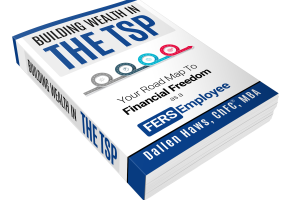Your TSP (Thrift Savings Plan) is an awesome place to save for retirement and get tax benefits.
But what happens to your TSP when you die?
Where does it go? Who has to pay taxes/penalties? When do they have to withdraw it?
This article will help you make sure your spouse, kids, or other heirs can get the full benefit of your TSP without getting killed in taxes/penalties.
All That Matters
Certain types of accounts and assets have a beneficiary attached to them.
Retirement accounts (TSP, 401k, IRA, etc.) and life insurance are some of the most common.
And when something has a beneficiary then the beneficiary will inherit that account/asset regardless of what other documents may say (like a will).
So if you update your will to say that your TSP should go to your current spouse but your TSP beneficiary is still your ex-spouse then your ex-spouse will get your TSP every time.
So please check your TSP beneficiary! Make sure it is who you want it to be.
Backup Defaults
If you die and have never actively listed someone as your TSP beneficiary then here are the default beneficiaries:
To your spouse
If none, to your child or children equally, with the share due any deceased child divided equally among that child’s descendants
If none, to your parents equally or to your surviving parent
If none, to the appointed executor or administrator of your estate
If none, to your next of kin who is entitled to your estate under the laws of the state in which you resided at the time of your death
What Happens When Your Spouse Gets Your TSP?
Your spouse is the only person who can keep inherited TSP money inside the TSP.
They can remove it from the TSP but they don’t have to.
And while in the TSP, they can change the fund allocations just as you were able to do.
And if your spouse has their own TSP account as well then they’d be able to rollover your TSP account into their own.
And as long as the money stays in the TSP then no taxes/penalties will be owed.
However, if/when your spouse makes a withdrawal then that is when taxes will be owed (assuming your TSP was traditional).
If you want to learn more about Spouse inherited TSP accounts then check out this guide.
What Happens When a Non-spouse gets your TSP?
If anyone other than your spouse inherits your TSP then they are unable to keep the funds within the TSP.
They have two options for where the money can go.
They can take payment directly to themselves from the TSP (a withdrawal)
Or roll it over to an Inherited IRA
99% of the time they are going to want to move the funds to an Inherited IRA!!!
Because if they simply remove the money from the TSP then the entire TSP balance (assuming it’s all traditional TSP) would be taxable income!
But if they move the funds to an inherited IRA then no taxes are owed.
Taxes would only come into play when money later came out of the Inherited IRA.
Rules for Inherited IRAs
Money can not be left in inherited IRAs indefinitely.
You have to remove the funds in one of the following 2 ways.
You can choose to take RMDs (required minimum distributions) based on your life expectancy or the deceased’s life expectancy
Or you can choose to take distributions over 10 years. You can break up the distributions however you’d like as long as the account is empty after 10 years.
So it is key to make sure that your beneficiaries know the rules before they inherit your TSP so that they don’t make any big mistakes that would send a huge chunk of your TSP to the government in taxes and penalties.
What If I Leave Some Roth TSP Money?
If you do leave behind some Roth TSP then your heirs would not owe any taxes on those funds.
They will get the same tax-free status with that money that you had.
Get This Done Now!!
Getting beneficiaries updated and making sure you have the right estate documents is not the most enjoyable thing to do but it makes a massive difference in how things turn out for your loved ones.
Some of the most common estate documents that people have are:
Will
Power of Attorney
Medical Directives
Trust (if needed)
If you don’t have an estate plan, please get one in place now!!
Your loved ones will thank you many times over.


